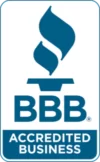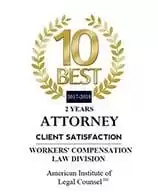As a matter of law and public policy, property owners in Pennsylvania must keep their property reasonably safe for the people they allow onto it. This is called a “duty of care.” When property owners fail to keep their premises in good repair and free of hazards, innocent people can suffer devastating personal injuries. A premises liability attorney can help you navigate the complexities of the law and help you get the compensation you deserve.
Not every accident inside a business or in someone’s home is the owner’s fault. To bring a premises liability claim, an injured person must prove:
- A property owner owed a duty of care to the injured person.
- The property owner failed to live up to this duty of care.
- That breach of duty caused the injured person’s injuries.
- Those injuries resulted in actual (quantifiable) damages.
Persons who suffer an injury usually have medical bills, lost income, and other evidence to prove their damages. Most cases depend on demonstrating that a property owner breached their legal duty of care towards the injured person.
In general, property owners must keep their premises safe for those they allow onto the property. An “invitee” is a person who is permitted onto your property for business purposes, like clients, customers, delivery personnel, mail carriers, patrons, patients, or other business associates. A “licensee” is a person permitted on the property for some personal or social purpose. A “trespasser” is someone on the property without permission from the property owner. The law does not require a property owner to protect trespassers, but it also does not allow them to cause them harm (like setting booby traps).
Duty of Care: Private Property
Private property owners must take reasonable measures and use reasonable care to maintain their property for invitees and licensees. Where reasonably possible, they should fix dangerous conditions; if they cannot, they should provide an appropriate warning.
For example, in wintery weather conditions, it may be impossible to remove ice and snow on walkways altogether, despite a homeowner’s best efforts to shovel, spread salt or chemical deicers, and use non-slip mats or devices. If a walkway is especially hard to keep safe, it might be reasonable to display a sign warning of icy conditions.
A court will ask:
Did the property owner do what a reasonably prudent person would have done in the circumstances to prevent harm to others?
If the answer is “yes” – they took reasonable steps to ensure the safety of others — then they most likely did not breach their duty of care. If it is “no,” an injured person may have a premises liability claim.
Duty of Care: Commercial Property
Owners and operators of commercial or business property must use reasonable care to ensure that a property’s publicly accessible areas are reasonably safe. An owner’s duty of care also applies to landlords, property managers, commercial tenants, and other representatives that control the property’s day-to-day management and maintenance.
Commercial owners’ duty of “reasonable care” is higher than private property owners. Commercial property owners (or their agents) must make reasonable property inspections to discover any hazards or dangers. Then they must take reasonable actions to fix dangerous conditions within a reasonable time after they knew or should have known about them. Even if a property owner did not know of a hazardous condition, they may be held liable if a reasonable inspection would have made them aware.
Owners and commercial occupants of business premises must also keep parking lots, walkways, and adjacent sidewalks in good condition and free from hazardous debris, ice, and snow. If they add a new element of danger or hazard in their attempts to clear these areas, this can add a new element of liability.
Failure to Maintain A Safe Property
Many premises liability accident claims result from slips, trips, and falls. Often, simple actions by a property owner could have prevented significant injury. Examples of common scenarios that can cause broken limbs, fractured hips, slipped discs, and damaged spines are:
- Spilled liquids on a restaurant or grocery store floor.
- A loose mat outside the entrance to a home or business.
- Burned out and broken lights over an apartment or business stairwell.
- Loose handrails and poorly maintained stair treads.
- Inadequate or faulty fencing or barriers.
- Unreasonable ice and snow buildup in an office parking lot.
- Debris, trash, and construction materials piled outside a building.
- Cracked sidewalks and pavement ruts in parking lots.
- Uncovered pools, drains, wells, or other water hazards.
- Uneven and poorly maintained curbs outside buildings or around parking lots.
- Improperly restrained or enclosed animals.
Negligent security is another common situation that may lead to a premises liability claim. When the owner of a parking garage, parking lot, hotel, or other commercial building knows there is a high risk that people could be violently attacked on the property, they should provide reasonably appropriate security. This could include security lighting, cameras, attendants, security officers, or other measures, depending on the situation. If the owner fails to take reasonable measures and someone is attacked or injured, an owner may be legally liable for their damages.
Act Quickly to Preserve Your Rights
If you have slipped, tripped, fallen, or otherwise been injured on someone’s property due to a dangerous condition, contact the experienced legal team at Hall & Copetas immediately. There are time limits to pursue a premises liability claim, and if you wait, time may run out for you to file your lawsuit. If you have suffered injuries on a publicly owned property (such as in a government building), additional time restrictions and filing requirements may apply.
Prompt action can help preserve evidence that will strengthen and support your case. Contact us today for a no-obligation consultation.







